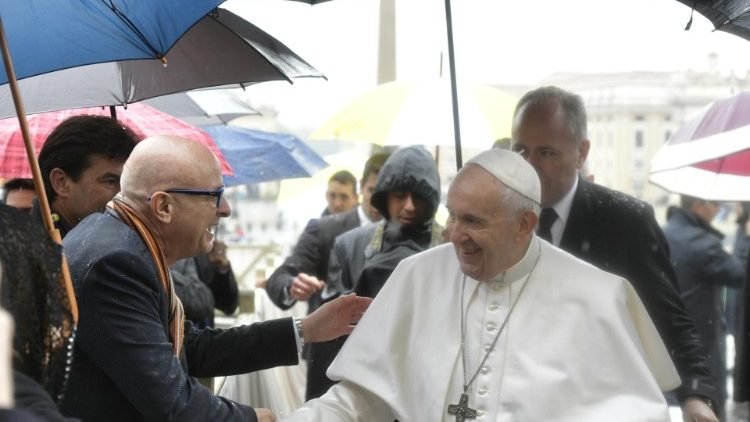At Wednesday’s General Audience, Pope Francis continues his catechesis on the “Our Father”, reflecting on the petition “Forgive us our debts”.
By Christopher Wells
Pope Francis connected last week’s reflection to his catechesis for this week, saying that, we need forgiveness, every day, in the same way that we need our “daily bread.”
“But even if we were perfect, even if we were ‘crystalline saints’” who never went astray, “we would always remain children who owe everything to the Father”, the Pope said, explaining how we are “indebted” to God.
Pride: the most dangerous attitude
He warned against the sin of pride, “the most dangerous attitude for every Christian life.” Some sins, he said, are blatantly obvious, but some are insidious, “lurking in the heart without us even knowing”. Pride is the worst of these, the Pope said; it is a sin “which can infect even people who live an intense religious life”. Quoting the First Letter of St John, Pope Francis said, “If we say we have no sin, we deceive ourselves”.
But, the Pope continued, although we are indebted to God because of our sins, we are debtors first of all “because in this life we have received so much” from God. Even when life is difficult, he said, “we always have to remind ourselves that life is a grace, it is the miracle that God has extracted from nothing.
We can love because we were loved first
Pope Francis noted that we are also indebted to God because none of us is able to love without the grace of God. The Pope described this as the mysterium lunae, the “mystery of the moon”, which does not shine with its own light, but can only reflect the light of the sun. If we love, the Pope said, it is because we were loved first. If we forgive, it is because we have been forgiven.
“None of us loves God as He has loved us”, the Pope said. “It is enough to place yourself before a crucifix to grasp the disparity: He has loved us, and He always loves us first”.
Pope Francis concluded by inviting us all to pray, “Lord, even the most holy among us do not cease to be debtors to you. O Father, have mercy on us!”



